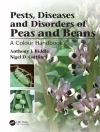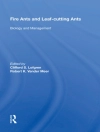The common beans and pulses are diverse food resources of high
nutritional value (protein, energy, fiber and vitamins and
minerals) with broad social acceptance. These legume crops
demonstrate global adaptability, genotypic and phenotypic
diversity, and multiple means of preparation and dietary use.
Beans and pulses are produced in regions as diverse as Latin
America, Africa, Asia, and North America, and on a scale similar to
some other crops, such as wheat, corn, rice and soybeans.
Numerous factors influence utilization, including bean type and
cultivar selection, cropping environment and systems, storage
conditions and handling infrastructure, processing and final
product preparation. Nutrient content and bio-availability
are dramatically influenced by these conditions. In recent
years, beans and pulses have been cited for imparting specific
positive health potentiating responses, such as hypocholesteremic
response, mitigation of diabetes and colonic cancer, and weight
control. Enhanced dry bean utilization focused on improved dietary
health is an opportunity within both subsistent and developed
populations.
This book provides a contemporary source of information that
brings together current knowledge and practices in the value chain
of beans/pulses production, processing, and nutrition. It
provides in-depth coverage of a wide variety of pertinent topics
including: breeding, postharvest technologies, composition,
processing technologies, food safety, quality, nutrition, and
significance in human health. An experienced team of over 25
contributors from North America, Asia, and Africa has written 15
chapters, divided into three sections:
* Overview, production and postharvest technologies of beans and
pulses
* Composition, value-added processing and quality
* Culinology, nutrition, and significance in human health
Contributors come from a field of diverse disciplines, including
crop sciences, food science and technology, food biochemistry, food
engineering, nutritional sciences, and culinology. Dry Beans and
Pulses Production, Processing and Nutrition is an essential
resource for scientists, processors and nutritionists, whatever the
work setting.
Daftar Isi
Contributors vii
Preface ix
PART I: OVERVIEW, PRODUCTION AND POSTHARVEST TECHNOLOGIES
1
1. Dry Beans and Pulses Production and Consumption–An
Overview 3
Muhammad Siddiq and Mark A. Uebersax
2. Dry Bean Breeding and Production Technologies 23
James D. Kelly and Karen A. Cichy
3. Market Classes and Physical and Physiological Characteristics
of Dry Beans 55
Mark A. Uebersax and Muhammad Siddiq
4. Postharvest Storage Quality, Packaging and Distribution of
Dry Beans 75
Mark A. Uebersax and Muhammad Siddiq
PART II: COMPOSITION, VALUE-ADDED PROCESSING AND QUALITY
101
5. Composition of Processed Dry Beans and Pulses 103
Elham Azarpazhooh and Joyce I. Boye
6. Hydration, Blanching and Thermal Processing of Dry Beans
129
Norman J. Matella, Dharmendra K. Mishra and Kirk D.
Dolan
7. Canned Whole Dry Beans and Bean Products 155
Brittany L. White and Luke R. Howard
8. Extrusion Processing of Dry Beans and Pulses 185
Jose De J. Berrios, José Luis Ramírez Ascheri and Jack
N. Losso
9. Processing of Dry Bean Flours and Fractions 205
Xin Rui and Joyce I. Boye
10. Cowpea Processing and Products 235
Robert D. Phillips
11. Utilization of Dry Beans and Pulses in Africa 261
Jose Jackson, Joyce Kinabo, Peter Mamiro, Delphina Mamiro and
Victoria Jideani
12. Common Pulses: Chickpea, Lentil, Mungbean, Black Gram,
Pigeon Pea and Indian Vetch 283
Muhammad Nasir and Jiwan S. Sidhu
PART III: CULINOLOGY, NUTRITION AND SIGNIFICANCE IN HUMAN
HEALTH 311
13. Culinary Perspective of Dry Beans and Pulses 313
Carl P. Borchgrevink
14. Nutrition and Human Health Benefits of Dry Beans and Pulses
335
Elizabeth A. Rondini, Kathleen G. Barrett and Maurice R.
Bennink
15. Chemistry and Implications of Antinutritional Factors in Dry
Beans and Pulses 359
Shridhar K. Sathe
Index 379
Tentang Penulis
Muhammad Siddiq, Associate Professor and Mark A. Uebersax, Professor Emeritus, both of the Department of Food Science & Human Nutrition, at Michigan State University, East Lansing, Michigan, USA












